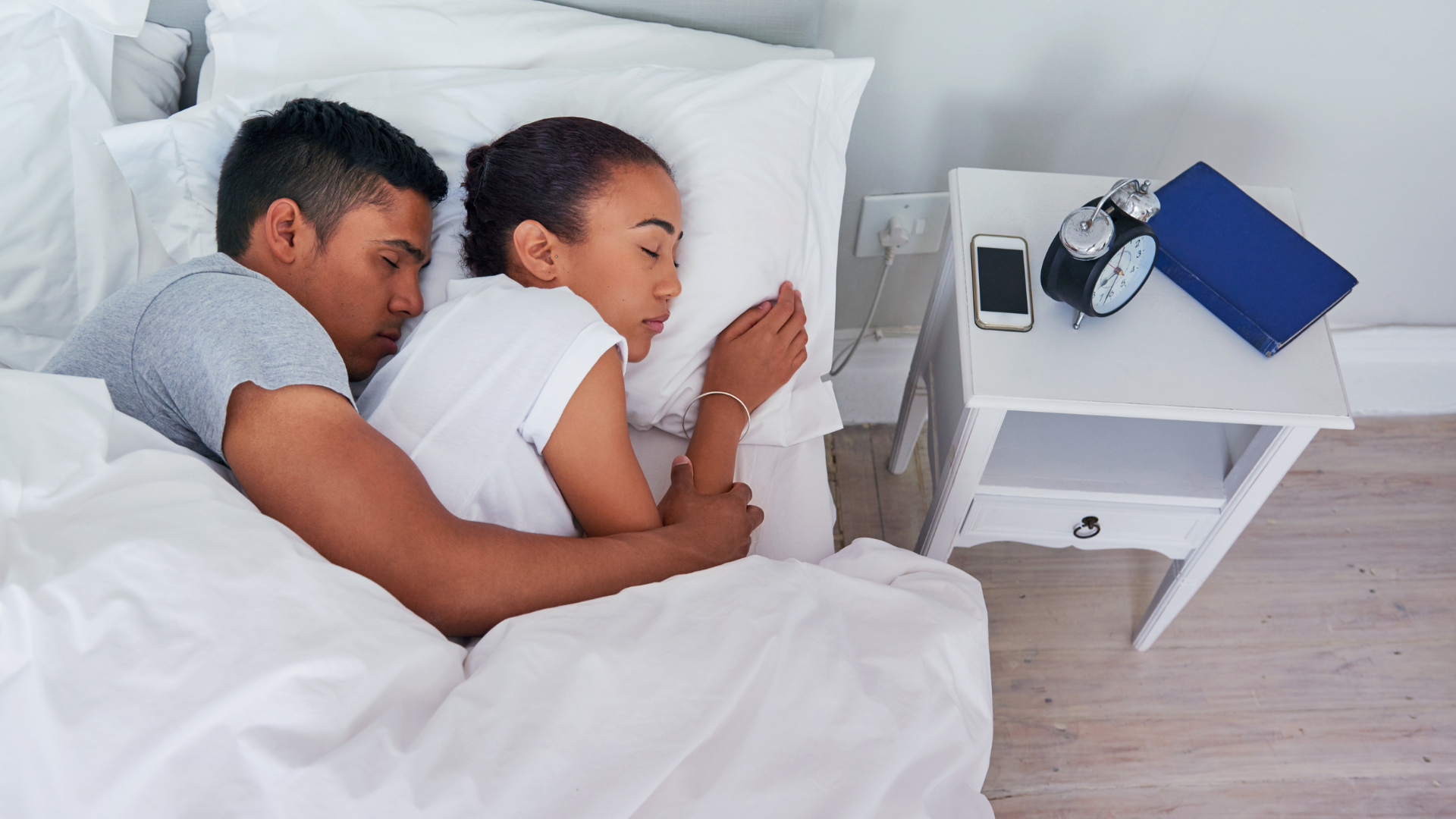
13 Oct Battle of the Sexes: Sleep Edition
Here’s the age-old question: why do men sleep better than women?
Sleep issues affect nearly 15% of Americans, and women are 41% more likely to have them.
So, what’s the connection between sex hormones and sleep? Researchers think it might have something to do with sex hormones circulating in the body.
Differences in Sleep Experience
Research has found that while women sleep longer, they also wake up more often than men. Women report experiencing sleep problems a few times a week, ranging from trouble falling asleep to waking up more often throughout the night and having trouble getting back to sleep.
Despite this, men aren’t exempt.
Snoring and breathing pauses were more common in males during sleep than in females. In order to feel refreshed and ready for the day ahead, they also reported needing more sleep than the minimum requirement. Mood complaints, anxiety, sadness, and other mood issues can affect sleep quality perception.
Sex Hormonal Influence
Gender influences brain function, chemistry, and even composition. As a result of the distinct roles that sex hormones play during puberty and throughout adulthood, these differences become more apparent. Earlier research in this area suggested that ovarian steroids influence sleep-wake cycles in females and, though less profound, testicular steroids influence sleep-wake cycles in males. It has been confirmed by later studies that testosterone levels and sleep are related, although it is harder to detect in men.
Ovarian Sex Hormones and Sleep
Sleep quality can be affected by physiological changes in a woman’s body as well as age-related changes. Hormonal fluctuations occur during menstruation, pregnancy, postpartum, and menopause. The use of oral contraceptives, which alter sex hormone levels in the body, may also affect circadian rhythms. Poor sleep has been linked to third trimester pregnancy, menopause, and the late-luteal phase of the menstrual cycle. Women’s sleep patterns may be affected by estrogen and progesterone imbalances. The metabolite of progesterone, allopregnanolone, promotes GABA function due to its GABA agonist properties. Sleep and mood are supported by GABA, an inhibitory neurotransmitter.
Estrogen, Estradiol (E2), and Serotonin
The brain has more serotonin receptors when estrogen (E2) is present. Serotonin is also an inhibitory neurotransmitter that regulates sleep and mood. As women age, their sex hormone levels drop. There’s more to poor sleep in older women than just declining sex hormones. Women report sleep disturbances more often than men since ovarian sex steroids are so unstable throughout their lives.
Testicular Sex Hormones and Sleep
It’s hard to say exactly how testosterone affects sleep, but there’s some evidence. Sleep quality, duration, and circadian rhythm may affect testosterone levels in men over 65. It’s been shown that lower testosterone levels lead to less deep sleep, more awakenings during the night, and less slow-wave sleep.
Testosterone is a Serotonin Agonist
In addition, testosterone acts as a serotonin agonist, so more testosterone equals more serotonin. Serotonin plays a role in mood and sleep. Research shows that increased testosterone levels, caused by testosterone administration, result in shorter sleep durations, more awakenings, and more sleep problems. Hence, an optimal circadian pattern requires an appropriate testosterone balance.
Circadian rhythm and sleep are regulated by sex hormones, which interact with neurotransmitters and brain activity. The right balance can help manage poor sleep and improve health overall.
How much sleep are you getting? Find out if sex hormones are contributing to your sleep issues.
If you’re ready to begin improving your health from the inside out, having your neuroendocrine system checked is a great place to start.
Reach out today and let’s talk about what the next best step is for you and your health and wellness goals.
7 Secrets for Keeping Men’s Hormones In Balance
Podcast Episode
Testosterone, estrogen, and cortisol levels all have a profound impact on men’s health and it’s not just your libido that crashes when these hormones are depleted. Here’s everything you need to know to keep these hormones in production and in healthy balance.
Want more tips, tools and strategies to help you live longer and live better with lifestyle medicine? Join our mailing list today!



No Comments